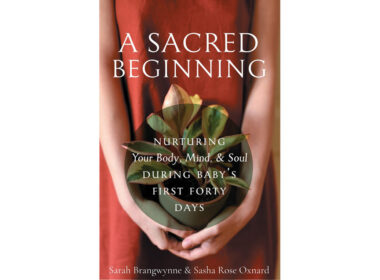In college, many of my friends happened to be really excited about women’s health and healthy sexuality. They were the kind of people who gave presentations on menstrual cups for public speaking class, co-founded sexual assault and sexual harassment awareness weeks, travelled to local high schools to talk about healthy relationships, and ordered uterus plushies from specialty shops online out of love for the female body and a desire to combat period stigma. Amongst these excellent student initiatives (and the one that had the biggest impact on my day-to-day life, both then and now) was a successful petition to bring free FEMM workshops to campus. At the workshop, I learned how to chart and understand my cycles. Now that I’m married, FEMM has taken on a very relevant role in my daily life, but even in college, learning fertility awareness positively impacted my college experience. The following are four key ways that having the knowledge of fertility awareness made my time in college better.
1. No more surprise periods
In college, there’s often a bit less routine and a bit more spontaneity compared to high school. Class schedules may vary from day to day, workload varies throughout the semester, and there may be various opportunities for travel. With this kind of disrupted rhythm, I often felt like the start of my period was determined purely by whenever would be least convenient. Big presentation? Period! Starting a twelve-hour road trip? Period! Midterm exam? Period!
While learning to chart my cycles didn’t prevent my period from lining up with spring break, it did allow me to feel like my menstrual cycle was something that could be understood, anticipated, and prepared for, rather than something that caught me off-guard every month.
2. Learning what’s normal—and getting help when it’s not
Before taking fertility awareness classes, many of my friends felt pretty uncomfortable talking about their periods, but I found that the class group setting helped us open up in conversations around fertility. These conversations, on top of what we learned from FEMM, really helped us to understand what was normal and what was not.
For example, I had always thought that crippling pain on the first day of a period was normal, because that was my mom’s experience as well… and her mom’s experience! Several other friends had similar “aha” moments during the workshop, and were able to get help for reproductive issues like low progesterone, helping us cope with our period struggles now, and potentially avoiding hormone-related struggles with infertility down the road.
3. Understanding my overall health
After I finished school, my abnormally long cycles became almost a full week shorter since I was no longer subjecting my body to poor eating habits, an irregular sleeping schedule, and the stress of tests, papers, and projects. Now, I know that I can look at my charts to see if I’m pushing my body too hard or not taking good care of myself.
In short, learning to chart my cycles helped me to understand fertility as another vital sign. I also know that my period health has important implications for my heart, brain, breast, immune, and bone health, which encourages me to take the signs I’m seeing in my cycle charts seriously!
4. Creating a positive culture around sexual health
I know that some schools over the past few decades have taken to hosting an event they call “Sex Week,” where all manner of sexual activities are discussed, promoted, and celebrated. My small, Catholic college did not (and would be unlikely to ever) host such an event, and I actually really appreciated that the FEMM workshops allowed reproductive health to be discussed outside of the obvious context of sexual activity.
At many colleges, reproductive health is only discussed in relation to sex, and not just any sex. College students are taught, whether implicitly or explicitly, the mistaken idea that wild consequence-and-commitment-free sex is simply part of the college experience. When the experience of sex is the only aspect of reproductive health touched on in classes, or addressed in extracurricular activities or organizations, young men and women miss out on all the related topics, like how to have healthy boundaries in relationships, or how to make responsible decisions. They also miss out on education about fertility, hormones, and, for the woman in particular, what’s normal for her cycle and what’s not. Thanks to the free fertility awareness classes at my college, my friends and I learned these related skills that are so important for supporting our reproductive health, our emotional health, and our overall health, in every stage of life.
I learned the things I remember most from college in fertility awareness class
Depending on your major, a lot of what you learn in college may not come up very often in your daily life. Rather, it’s the opportunity presented by the college experience to grow, mature, and gain a better understanding of the world that makes the most lasting impact. One such opportunity for growth at my school was the opportunity to learn about fertility awareness, and it’s one that I hope other universities will consider providing for their students to support their health and wellbeing.
Better still, hopefully someday girls will first learn about the purpose and beauty of female hormones and fertility long before they get to college. By the time their first period comes, they’ll understand that menstruation is an indicator that the real main event of the cycle—ovulation—has already occurred. They’ll know that irregular periods in the teen years are expected, and when to seek help from a restorative reproductive medical provider. They’ll know that fertility is a normal and important part of every woman’s life. Not every girl will grow up to give speeches about menstrual cups or buy a uterus plushy, but every girl deserves to know the goodness of her female design.
Additional Reading:
FAM-friendly apps to help your teen understand her cycle and learn basic charting
Natural Womanhood Book Review: The Happy Girl’s Guide to Being Whole
Is your period and ovulation tracker legitimate?
What can charting your cycle tell you about your hormonal health?
Why you really need to learn from a fertility awareness instructor







